
The Electric Light Orchestra (ELO) are an English rock band formed in Birmingham in 1970 by songwriters and multi-instrumentalists Jeff Lynne and Roy Wood with drummer Bev Bevan. Their music is characterised by a fusion of pop and classical arrangements with futuristic iconography. After Wood's departure in 1972, Lynne became the band's sole leader, arranging and producing every album while writing nearly all of their original material. From this point until their first break-up in 1986, Lynne, Bevan, and keyboardist Richard Tandy were the group's only consistent members.

Jeffrey Lynne is an English musician, singer-songwriter and record producer. He is the co-founder and leader of the rock band Electric Light Orchestra (ELO), which was formed in 1970, and as a songwriter has written most of the band's hits, including "Evil Woman", "Livin' Thing", "Telephone Line", "Mr. Blue Sky", "Don't Bring Me Down" and "Hold On Tight".

David Walker is an English singer and guitarist who has been front-man for a number of bands; most notably The Idle Race, Savoy Brown and Humble Pie, he also served briefly with Fleetwood Mac and Black Sabbath.

The Surfaris are an American surf music band formed in Glendora, California, in 1962. They are best known for two songs that hit the charts in the Los Angeles area, and nationally by May 1963: "Surfer Joe" and "Wipe Out", which were the A-side and B-side of the same 45 rpm single.
The Concert for George was held at the Royal Albert Hall in London on 29 November 2002 as a memorial to George Harrison on the first anniversary of his death. The event was organised by Harrison's widow, Olivia, and his son, Dhani, and arranged under the musical direction of Eric Clapton. The profits from the event went to the Material World Charitable Foundation, an organisation founded by Harrison.
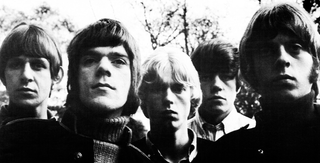
The Move were a British rock band of the late 1960s and the early 1970s. They scored nine top 20 UK singles in five years, but were among the most popular British bands not to find any real success in the United States. For most of their career the Move were led by guitarist, singer and songwriter Roy Wood. He wrote all the group's UK singles and, from 1968, also sang lead vocals on many songs. Initially, the band had four main vocalists who divided amongst themselves the lead vocal duties.
The Idle Race were a British rock group from Birmingham who in the late 1960s and early 1970s had a cult following but never enjoyed mass commercial success. In addition to being the springboard for Jeff Lynne, the band holds a place of significance in British Midlands' pop-rock history as a link between the Move, Electric Light Orchestra, the Steve Gibbons Band and Mike Sheridan & The Nightriders.

Face the Music is the fifth studio album by Electric Light Orchestra (ELO). It was released in September 1975 by United Artists Records and on 14 November 1975 in the United Kingdom by Jet Records. The album moves away from the large-scale classical orchestrated sound of the previous album, Eldorado, in favour of more "radio-friendly" pop/rock songs, though the string sections are still very prominent. The new sound proved successful for the group, for Face the Music was the first ELO album to go platinum.

Balance of Power is the eleventh studio album by the Electric Light Orchestra (ELO). It was released in 1986. It is the final album by the band to feature co-founder Bev Bevan on drums, as well as the last album to feature a significant contribution from keyboardist Richard Tandy.
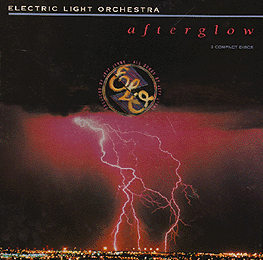
Afterglow is the third box set compilation by Electric Light Orchestra (ELO). It was released in 1990 with liner notes by music critic and editor Ira Robbins of Trouser Press. A different two-CD compilation with identical artwork was issued simultaneously under the title The Very Best of The Electric Light Orchestra.

Playback is a box set compilation by Tom Petty and the Heartbreakers, released in 1995. It contains popular album tracks, B-sides, previously unreleased outtakes, and early songs by Petty's previous band Mudcrutch.
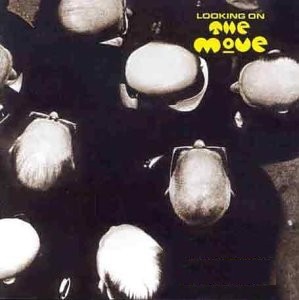
Looking On is the third studio album by The Move, released in the UK in December 1970. The album is their first to feature Jeff Lynne, their first containing entirely original compositions, and the first on the Fly label, its catalogue number being FLY 1. It includes both their 1970 singles, the Top 10 hit "Brontosaurus," released on Regal Zonophone in March, and the less successful "When Alice Comes Back To The Farm," released on Fly in October.
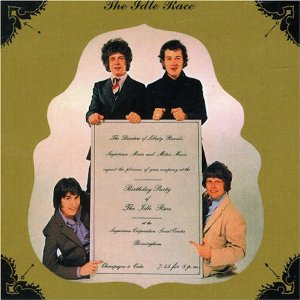
The Birthday Party was the first album by The Idle Race, a psychedelic pop band, released in 1968.

"Don't Bring Me Down" is the ninth and final track on the English rock band the Electric Light Orchestra's 1979 album Discovery. It is their highest-charting hit in the United States to date.

Armchair Theatre is the first solo album by Jeff Lynne, released in 1990.
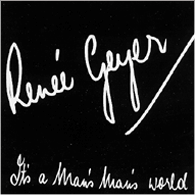
It's a Man's Man's World is the second studio album by Australian soul/R & B singer Renée Geyer. The album was released in August 1974 and peaked at number 28 on the Kent Music Report.
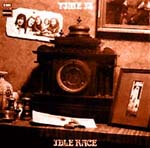
Time Is is the final studio album recorded by The Idle Race. It was recorded in 1970 after Jeff Lynne had left the band. He was replaced by vocalist Dave Walker and guitarist Mike Hopkins.
Tinkerbells Fairydust were a British pop group in the late 1960s, who hailed from east London. They recorded three singles and one album for the Decca label.
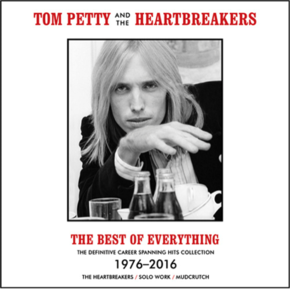
The Best of Everything is a 2019 greatest hits album with recordings made by Tom Petty, with his backing band The Heartbreakers, as a solo artist, and with Mudcrutch. It was released on March 1.
















